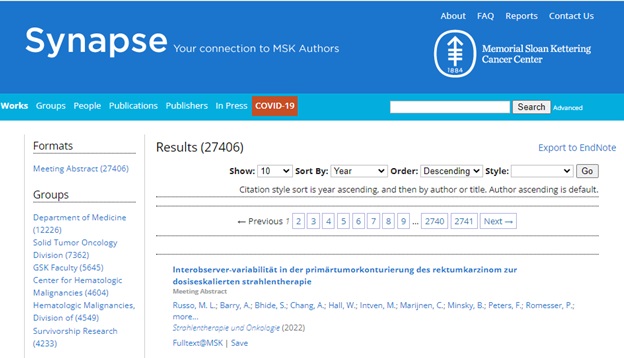In March of 2022, PMC launched its updated interface, which was intentionally designed to offer a familiar search experience for regular users of the new PubMed website (released in 2020). Learn more about the New PMC Website from NCBI Insights.
At the end of August 2022, they continue to add features that are much-appreciated by users of PubMed, namely the “Related Resources” functionality that is now available in both tools on the individual article record level. The PMC Related Resources feature includes three sections that a user may choose to expand and explore: 1) Similar articles, 2) Cited by other articles, and 3) Links to NCBI databases.
Below is the view of the Similar articles section expanded for a PMC article:

From the NLM Technical Bulletin:
PMC Releases Improved Related Resources Feature. NLM Tech Bull. 2022 Jul-Aug;(447):e4.
“Section 1: Similar articles. When expanded, this section displays a snapshot of articles from the PubMed database that are closely related to the one you are currently viewing (see Figure 2). The title, journal, and publication year of each article are displayed. You can click on an article title to navigate to its record on the PubMed site or click the “See all in PubMed” link to see the full list of similar articles in PubMed. When no similar articles are found, you’ll see a “No results available” message.
Section 2: Cited by other articles. When expanded, this section displays a snapshot of articles from the PubMed database that cite the article you are currently viewing. The title, journal, and publication year of each article is displayed. You can click on an article title to navigate to its record on the PubMed site or click the “See all in PubMed” link to see a full list of articles from PubMed that cite the one you are viewing. When no articles are found in PubMed that cite the article, you’ll see a “No results available” message.
Section 3: Links to NCBI databases. When expanded, this section displays links to records in other NCBI databases that relate to the current article you are viewing. You can click on the name of the NCBI database to navigate to a related record in that database. When there are no links to other NCBI databases available for the current article, you’ll see a “No results available” message.”
Questions? Ask Us at the MSK Library!

